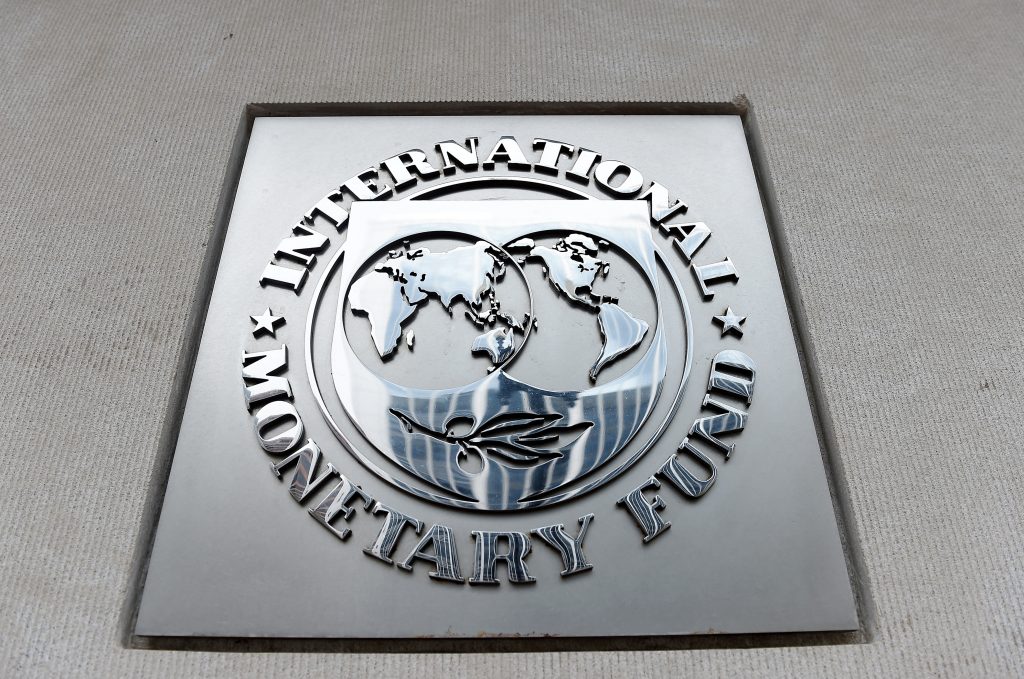
- ARAB NEWS
- 14 Jul 2025

Anthony Rowley
Special to Arab News Japan
TOKYO: The International Monetary Fund (IMF) this week said that “for the first time in living memory Asia’s growth is expected to contract by 1.6 percent in 2020.” Meanwhile, growth forecasts for the US and Europe plunge even more sharply.
The IMF also said that overall output in the six member economies of the Gulf Cooperation Council (GCC) will likely shrink by slightly more than 7.5 percent this year.
IMF expects the size of the global economy to drop by around 5 percent, director of the IMF’s Asia and Pacific Department Changyong Rhee, told Arab News Japan.
World trade is collapsing on both the export and import side. The World Trade Organisation (WTO) said it could plunge by up to 30 percent this year, and it is unlikely that domestic demand can be raised fast enough to compensate for the loss of exports in the short term, said Rhee.
“Our projections for 2021 and beyond assume a strong rebound in private demand but this may be optimistic,” he noted. Asia like many other regions “is heavily dependent on global supply chains and it cannot grow while the whole world is suffering.”
For those countries that are eager to achieve a stronger presence in the global merchandise export market, including some in the Middle East that are seeking to diversify away from dependence on price-volatile energy exports, the dramatic fall in trade volumes is particularly bad news.
The Gulf states’ economies could contract by 7.6 percent this year, making it their deepest decline in decades as COVID-19 and low oil prices take their toll, said director of the IMF’s Middle East and Central Asia Department Jihad Azour in a virtual economic forum on prospects for the region.
“The new IMF projection for the GCC is dramatically worse than the 2.7 percent contraction we forecast two months ago,” Azour noted. “Oil revenues in the GCC, which supply nearly a fifth of the world’s crude, are also expected to decline by $200 billion in 2020.”
The IMF projected that the Saudi economy, the largest in the region, will shrink by 6.8 percent in 2020 to its worst in more than three decades as low oil prices and the pandemic take their toll. However, Azour predicts a rebound in 2021 as Gulf economies are expected to grow by 2.5 percent.
But the rebound in Middle Eastern economies, as elsewhere, will begin from a very low base and it is far from clear at present whether the partial recovery will in fact occur or be sustained into 2022 if the feared second wave of coronavirus infections does materialize.
As the IMF said in a blog published on June 30, “reorienting Asia’s growth model toward domestic demand and away from a heavy reliance on exports has begun but will take more time to be completed.” What applies to Asia in this regard applies also to other regions of the world.
On top of the pandemic, trade has been dealt a body blow by “trade wars” primarily between the US and China which have rippled deeply into the global economy via myriad supply chain links in manufacturing and services. It is unclear how much of this damage is temporary and how much is permanent.
The double blow from the pandemic and trade pensions is a major factor behind the shocking contractions that the IMF is projecting for advanced economies in 2020, with the GDP in the US forecast to slump by around 8 percent while European Union and UK economies collapse by an even worse 10 percent.
Japan’s economy will likely contract by some 6 percent this year, the IMF says. The one major economy that is forecast to show any growth at all is China’s that the IMF believes could rise by 1 percent, but this will not be strong enough to compensate for the drastic economic slumps globally.
A subsiding first wave of COVID-19 infections does not mean early recovery. “Even when lockdown measures are fully relaxed economic activity is unlikely to return to full capacity due to changes in behavior and measures put in place to maintain physical distancing and reduce contagion,” says Rhee
With the pandemic is ongoing and the risk of a second wave of infections very real, and with most people and businesses concerned mainly with staying healthy and avoiding financial distress, there has been little time or inclination to consider COVID-19’s long-term economic implications.
Governments have attempted to battle the pandemic crisis with large amounts of financial aid in order to prevent corporate bankruptcies from occurring on a massive scale, while attempting to also rescue personal consumption from a devastating collapse.
“The focus now in Asia as elsewhere is on avoiding corporate bankruptcies and preventing a surge in unemployment,” Rhee says. However, many solvent companies could face bankruptcy, he suggested. “After the coronavirus, some [economic] sectors may no longer be viable.”
Policy choices will be needed to prop up economic activities and businesses and boosting fiscal transfers to individuals and households, in order to absorb the impact of corporate failures on employment and incomes, he suggests.
The price for all this support is not yet clear. Former Bank of Japan Policy Board member, Sayuri Shirai, has suggested that official rescue funds being directed to governments and corporations should be used to secure sustainable development rather than supporting current activities.
Disclaimer: Views expressed by the interviewee in this article are their own and do not reflect Arab News Japan’s point-of-view.